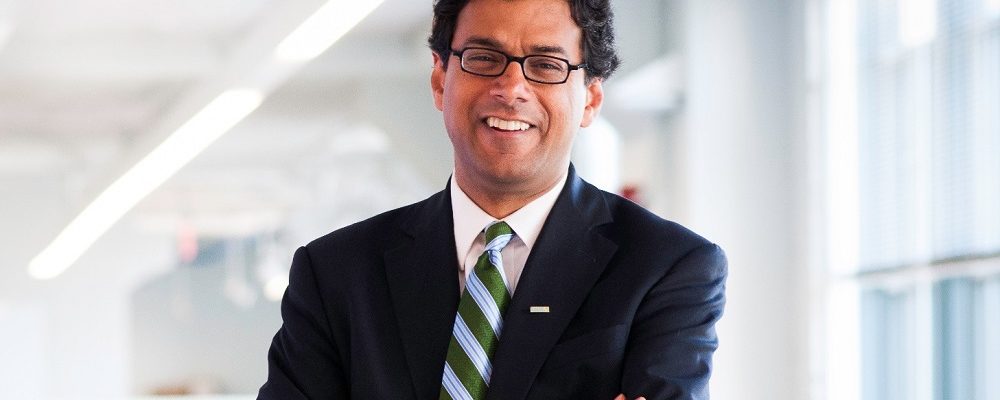A massive, new US healthcare partnership set up by three of the world’s biggest corporations will be led by a man with no prior corporate experience. The yet-to-be-named organisation is the brainchild of Jeff Bezos at Amazon, Warren Buffet at Berkshire Hathaway and Jamie Dimon at JP Morgan – and will exist to provide health cover for the firms’ combined workforce of 1.2 million people.
Instead of headhunting a seasoned CEO from America’s vast roll call of private healthcare companies, Bezos, Buffet and Dimon have secured the services of Dr Atul Gawande: a Boston-based surgeon who has achieved recognition in his field for research and writing focused upon novel methods of healthcare delivery. [1]
Indeed, Gawande’s most prominent leadership role so far is his position as head of Boston think tank Ariadne Labs, which is dedicated to looking at traditional healthcare-delivery modes in critical and innovative ways.
At a recent industry event held in the wake of his appointment to the new partnership, Gawande sketched out his mission by saying: “The largest concept here is I get to have a million patients that I as a doctor get to add to my responsibility. And my job to them is to figure out ways that we are going to drive better outcomes, better satisfaction with care and better cost efficiency with new models that can be incubated for all.”
Gawande noted that the current problems with US healthcare are that “doing the right thing is incredibly complicated”, and patients are routinely given “the wrong care in the wrong way at the wrong time”.
In a column for Inc.com, [2] venture capitalist, founder and business author Sean Wise describes Bezos, Buffet and Dimon’s decision to pick an inexperienced CEO as a “genius move”, and argues: “Hire from within when things are going well … Hire from outside when things aren't going well, or when doing ‘the same old thing’ simply isn't working.” Is Wise right to be so confident, or are there risks attached to this hiring strategy, too?
The Institute of Leadership & Management's head of research, policy and standards Kate Cooper says: “This is a really good example of the potential to disrupt, to introduce new thinking and to harness the intellect of someone who understands the systems, processes and complexities of the industry. But Gawande’s tenure will stand or fall on his willingness and ability to be receptive to those who understand the industry’s workings from within.”
Visionary, strategic thinking, Cooper notes, is of course important. “However,” she points out, “very often in cases where disruptors emerge to challenge existing practices, a gap will open up between the strategic vision that is compelling a leader to do things differently, and the people who are charged with actually delivering on those ideas.”
Cooper says: “what we must hope for is that Gawande doesn’t become impatient, or take the view that a lack of progress automatically indicates a lack of willingness on the part of his people to implement his ideas. It appears that he has a firm grasp on the complexity of the offer that he is about to square up to – after all, he has acknowledged that daunting influx of more than a million patients. But the very fact that he is determined to find new ways of solving old problems suggests that his ambition is at least aiming to equal to the scale of the brief he has taken on.”
She adds: “Is it risky? Yes. But unless some new approaches flow into this industry – and there are lessons for us here in the UK, too – the consequences will be dire. We have to look to technology to provide us with innovative solutions, open up new ways of working and disrupt in the way that Uber, AirBnB and eBay have disrupted their respective sectors. So let’s hope that Gawande has the tenacity and patience that will enable him to stay the course, the listening skills required for building a loyal team – and the knack for recruiting people who will help him disrupt existing frameworks and improve the service on offer.”
For further thoughts on building trust, check out these learning resources from the Institute
Image of Dr Atul Gawande courtesy of the Wikimedia Commons

